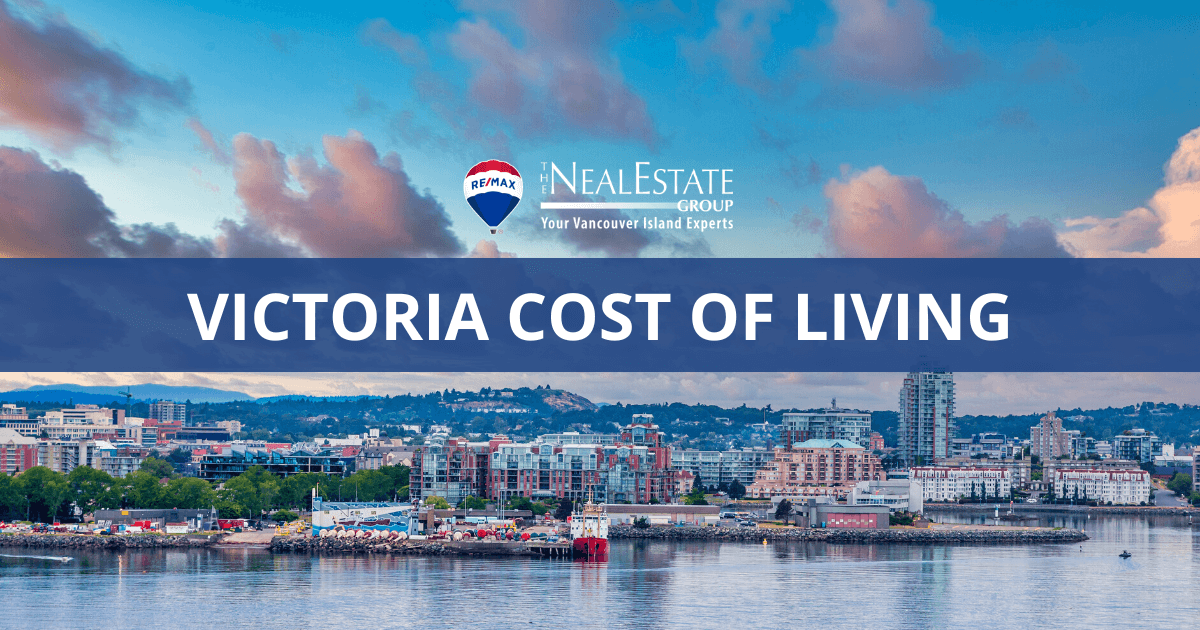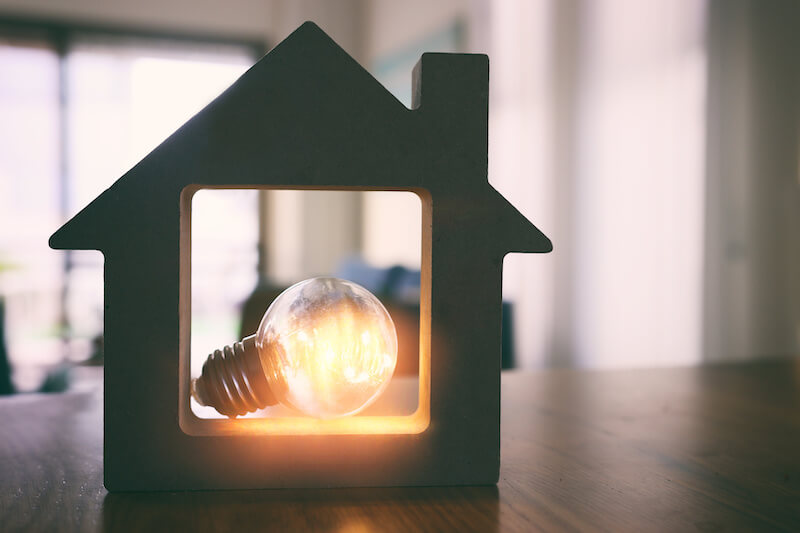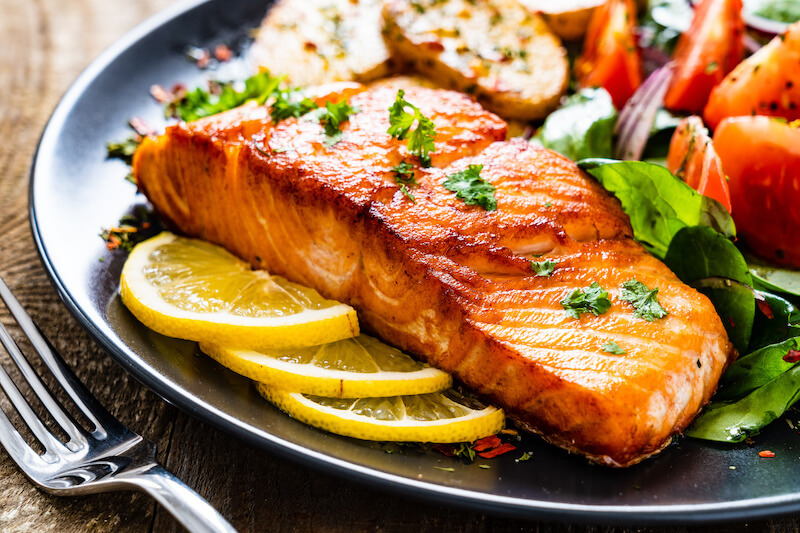Cost of Living in Victoria: 10 Things to Know About Living Expenses in Victoria [2024]
Posted by Ron Neal on Tuesday, February 28th, 2023 at 10:13am.

A Pacific Coast treasure, Victoria, BC, is the beloved provincial capital on Vancouver Island. With its stunning Victorian architecture, scenic landscapes, and endless opportunities for outdoor adventures, this city is highly regarded as a great place to live.
Although Victoria's relatively low cost of living was once highly enticing to homebuyers and renters alike, prices have been slowly rising over the years. Despite that, the population continues to grow yearly and shows no signs of stopping. With the number of people moving to Victoria, predictions indicate that the population could jump by 22% in the next two decades. The city offers excellent value for the money, especially considering the vast selection of waterfront homes.
Ready to see just what it costs to live in Victoria? Here's a look at the cost of housing, food, transportation, and more.
Victoria Housing Costs
On average, homes in Victoria sell for about $1 million, which is comparable to other high-cost living areas like Toronto. This capital city ranks number five for high rental rates, too, with a two-bedroom apartment costing an average of $2,800 per month.
Comparison of Median Housing Costs in Victoria
The average cost of single-family homes is $1.2 million. Victoria condos list from the $200s but are more commonly listed from the $500s and up. Townhomes in Victoria list from the high $500s.
Rental rates will likely continue to rise as would-be homeowners decide to rent for now. The tight rental market may make it harder to find vacancies, resulting in a marked increase in the monthly rate.
Median Home Price
Victoria, BC, home prices range from $350,000 to over $3 million. Not surprisingly, single-family homes in Downtown Victoria and by the waterfront are the priciest.
In James Bay, for example, homes can easily reach $3.5 million due to their prime location and upscale amenities. Oceanfront homes in Oak Bay, Victoria West, and Fairfield East never fail to fetch a high price.
Homebuyers can set their sights on Fernwood and Oaklands for upscale inland homes. Home prices range from $800,000 to over $1.75 million in those areas. Spacious floorplans with basement suites dominate the interior home designs, while their yards feature exquisite gardens filled with native plants galore.
Downtown Victoria features many excellent condos ready to own, although they're often selling for more than the average price in the region. Homebuyers may look in the Harris Green, North Park, Hillside, and Burnside neighbourhoods to find more affordable properties. In those areas, residential real estate prices range from $350,000 to over $1.2 million.
Median Rent
The average monthly rent for a home in Victoria is between $1,200 and $3,000, depending on the home type, size, and location. Single-family rentals cost the most to rent, while studio apartments offer Victoria living on a budget.
In Fairfield West, studio apartments cost $1,250 per month on average to rent. Fairfield's one-bedroom apartment rentals are $1,900, while two-bedroom rentals are $2,750. Studios in Downtown Victoria are similarly priced at $1,350 per month, although two bedrooms are a bit more affordable at $2,300 on average.
For the most affordable rentals, renters have to look at homes in Jubilee and Fernwood. At $1,800 per month, Jubilee's two-bedroom rentals offer the most space for the money. One-bedroom apartments in Jubilee are just $1,700 per month. Fernwood studios are $1,200 a month, and the two bedrooms come in at about $1,900.
Single-family rental homes have a much higher price tag no matter where renters look in the city. Their monthly rate is about $3,000 for a three-bedroom, one-bath home with a garage and private yard.
Utilities

Utilities typically cost between $300 and $600 per month, depending on the home size and the total number of people living there. On average, two-person households with gas and electricity bills pay about $230 per month for power. Average electricity costs are $125 monthly, while gas adds $104. Water, sewer, and garbage add around $125 to the monthly utility bills.
Phone service is around $50 per month plus $20 for each extra line added to the account. Households that want internet service may pay another $80 per month. Cable TV usually starts from $130 per month, while streaming services cost $10 to $20 apiece.
Most rental properties wrap water, sewer, and garbage into the base monthly rate. Luxury condos may include high-speed internet service as well. Power, TV services, and phones cost extra.
Food Costs in Victoria
In a typical Victoria household, monthly food expenditures cost about $300 per person. Of course, food costs will vary based on preferences, dietary restrictions, meals out, and stores.
Victoria Average Food Costs
In 2022, food prices increased by 10% and will likely continue to rise through the following year. Shoppers have responded by using more grocery coupons and limiting their visits to local restaurants.
Groceries
Each month, a two-adult household in Victoria, BC, can expect to pay about $600 per month for their groceries. The price only includes pantry essentials and fresh foods used to create meals by hand. The average cost of popular grocery items includes:
- One kilogram of apples: $4.50
- One kilogram of potatoes: $4.00
- One dozen large eggs: $7.00
- One litre of whole milk: $4.50
- 500 grams of local cheese: $15.00
- Two litres of name-brand soda: $3.00
- One bottle of table wine: $25.00
Costco is a popular place to buy affordable groceries in bulk. Real Canadian Superstore also offers affordable prices, especially on their eggs, meat, and produce.
Residents can go to local farmers' markets for even more affordable local produce, but each neighbourhood sets its own open dates and times. For example, the James Bay Market runs on Saturdays from May through September. The Victoria Public Market offers year-round deals seven days a week in the Downtown area.
Restaurants

Dining at Victoria restaurants can cost anywhere from $15–$50 per person. Low-key fast-food eateries have the lowest prices, while fine-dining restaurants charge the most for their meals and drinks.
When residents want a quick, low-cost bite to eat, they can go to the many fast-food eateries around town, like Wendy's, BeaverTails, and Fatburger. These restaurants charge around $15 per meal, including a drink.
Uchida Eatery, John's Place Restaurant, and other casual sit-down restaurants are also wonderful choices for eating out at a relatively low-cost eatery. Patrons may pay around $25 per meal when visiting these establishments.
For the full fine dining experience, there's Aura Waterfront Restaurant, Il Covo Trattoria, and other upscale restaurants near many of Victoria's luxury homes. The fine dining experience typically costs about $50 or more for each group member. Quality wine and other drink pairings can increase that price by at least $30 each.
Victoria Transportation Costs
In Victoria, each resident pays around $85 per month to ride the bus around town. With gas prices in the $2 per litre range, it's much more expensive to travel by car. Taxi rides are about $25 per eight-kilometre trip, and there's usually an extra fee if the driver waits for any length of time.
Victoria Transit Costs Comparison
When travelling by bus, riders use the Victoria Regional Transit System by BC Transit. Adults, teens, and seniors pay the same standard rate of $2.50 per ride. Children ages five and under can ride for free with a paying adult. Kids ages 6–12 can ride for free on their own.
Buying a book of ten tickets reduces the per-ride rate to $2.25. Further savings come from purchasing the monthly pass for $85. With that pass, riders can travel as much as they want throughout the month without paying anything extra.
A fuel-efficient vehicle with a 50-gallon tank costs up to $100 for a fill-up. At eight litres per 100 kilometres, a single fill-up is usually good for about 500 kilometres of travel. Most people pay an additional $150 per month for car insurance plus whatever it costs to maintain and repair their vehicles.
Taxis and ride-share vehicles are the most expensive way to travel around town. Each trip usually costs at least $50 to go just 15 kilometres. On average, wait times get charged at $30 per hour.
Healthcare Costs in Victoria

Eligible Victoria residents now get their health insurance for free through the Medical Services Plan (MSP) created by the British Columbia government. The Fair PharmaCare and PharmaCare programs cover all medication costs as well.
Before 2020, monthly health plan premiums were $75 per person, but that was eliminated in favour of providing medical, dental, and prescription coverage at no cost to residents. Eligibility begins about three months after moving to the province, and sign-up is mandatory.
Employers have the option of offering extra medical and dental coverage. This is helpful for adults since the medical service plan stops covering dental care services at age 19. Without an employer picking up the tab, private dental insurance costs about $40 per month for each person on the plan.
Vision care is not provided for adults, either. Typically, residents can expect to pay up to $100 for an eye exam and several hundred for a pair of eyeglasses or contacts.
While living in Victoria, pet owners may pay anywhere from $80 to $125 for exams at the veterinarian. Shots, flea and tick treatments, and other preventative care services add to that price. Surgical procedures can total in the thousands, although it's possible to avoid those costs by signing up for pet insurance.
Victoria Childcare Costs
Full-time childcare in Victoria costs between $790 and $1,125 per month for each child. Families can get childcare for two to four days per week at a much lower price. The childcare provider type and age of the child influence the monthly fee.
Victoria Average Monthly Childcare Costs
Care for infants costs the most since they're still in diapers and need more one-on-one support. Group daycares charge around $570 per month for full-time care. In-home nannies cost up to $1,200 each month. Toddlers have similar care costs, typically ranging from $600 to $1,050 per month.
For preschoolers, full-time childcare is $435 to $1,100. Families can save money by having their children attend preschool for half of the day. The exception is Montessori schools, which charge over $700 monthly for their part-time preschool programs.
Older kids can often benefit from before and after-school care, which costs about $500 a month or more. Families can choose to have their child go to the care center right before school, after getting out for the day, or both.
Live-in nannies are the most expensive childcare option in Victoria, BC. Most providers charge $15 to $25 per hour for both part-time and full-time care. At that rate, the monthly charges may total between $2,400 and $4,000 for eight hours of care, five days per week.
Entertainment Costs in Victoria

On average, in Victoria, BC, residents pay about $250 per month for entertainment. The most popular things to do include seeing movies, going out for dinner and drinks, and shopping at the boutiques along the Inner Harbour.
Ticket costs for the top attractions in Victoria are:
- Visit The Butchart Gardens: $1 to $4
- Go to the Royal BC Museum: $11 to $18
- Take a Craigdarroch Castle tour: $10 to $21
- Check out the Victoria Art Gallery: $2.50 to $7
- Admire insects at the Victoria Bug Zoo: $8 to $16
- Get a new perspective at Miniature World: $11 to $19
- Flutter about at the Victoria Butterfly Gardens: $7 to $18.50
Residents can also see the harbour in all its glory by riding the Happy Boats run by the Victoria Harbour Ferry for about $30 per person.
Free adventures also abound, like at the ten waterparks set all around the city. Beach Hill Park, Trafalgar Park, and many other green spaces allow residents to have a fantastic time without spending a dime.
Victoria Salary
Residents earn about $70,000 annually while living and working in Victoria. Employees must earn approximately $34 per hour to earn that rate annually. This competitive rate allows residents to enjoy an excellent standard of living despite the relatively high cost of living.
Monthly Expense Percentages Based on Average Victoria Salary
The minimum wage in Victoria is the same as the $15.65 rate set for all of British Columbia in 2022. Since this minimum was established recently, it likely won't change in the next few years. If the cost of living continues to rise, the local government may revisit the issue to ensure a stellar quality of life for all residents.
For the best wages, residents can seek jobs in high-paying positions like:
- Physician: $288,500 per year
- Pharmacist: $140,100 per year
- Executive Director: $134,800 per year
- Engineering Manager: $101,500 per year
- Registered Nurse: $97,300 per year
- Software Engineer: $87,600 per year
Local income tax rates range from 5.06% to 20.50%. The lowest rates apply to people earning between $0 and $45,654 per year. The highest income tax rate applies to annual salaries over $240,716.
Enjoy Capital City Living in Victoria, BC
Although the cost of living in Victoria continues to rise, this capital city is still a phenomenal place to live. Competitive salary rates help make up for higher monthly expenses, especially for those working in the healthcare and tech industries. Free healthcare insurance also sweetens the deal considerably, ensuring all residents enjoy the whole package upon moving here.
If you're dreaming about living in Victoria, contact The Neal Estate Team at (250) 386-8181 to get in touch with a local Victoria real estate agent who can help you find your perfect home.
Leave a Comment
 - Copy.png)
The Neal Estate Group is your #1 source for all of your Victoria BC real estate needs. Get in touch with us online or by phone at (250) 386-8181 to speak with a Victoria real estate buying or selling expert today. With decades of experience as a top selling Victoria REALTOR® and ranked in top 1% globally with over 5,000 transactions and $1 Billion SOLD, Ron Neal & The Neal Estate Group have the industry experience and market knowledge to help you make smart and informed buying or selling decisions.
